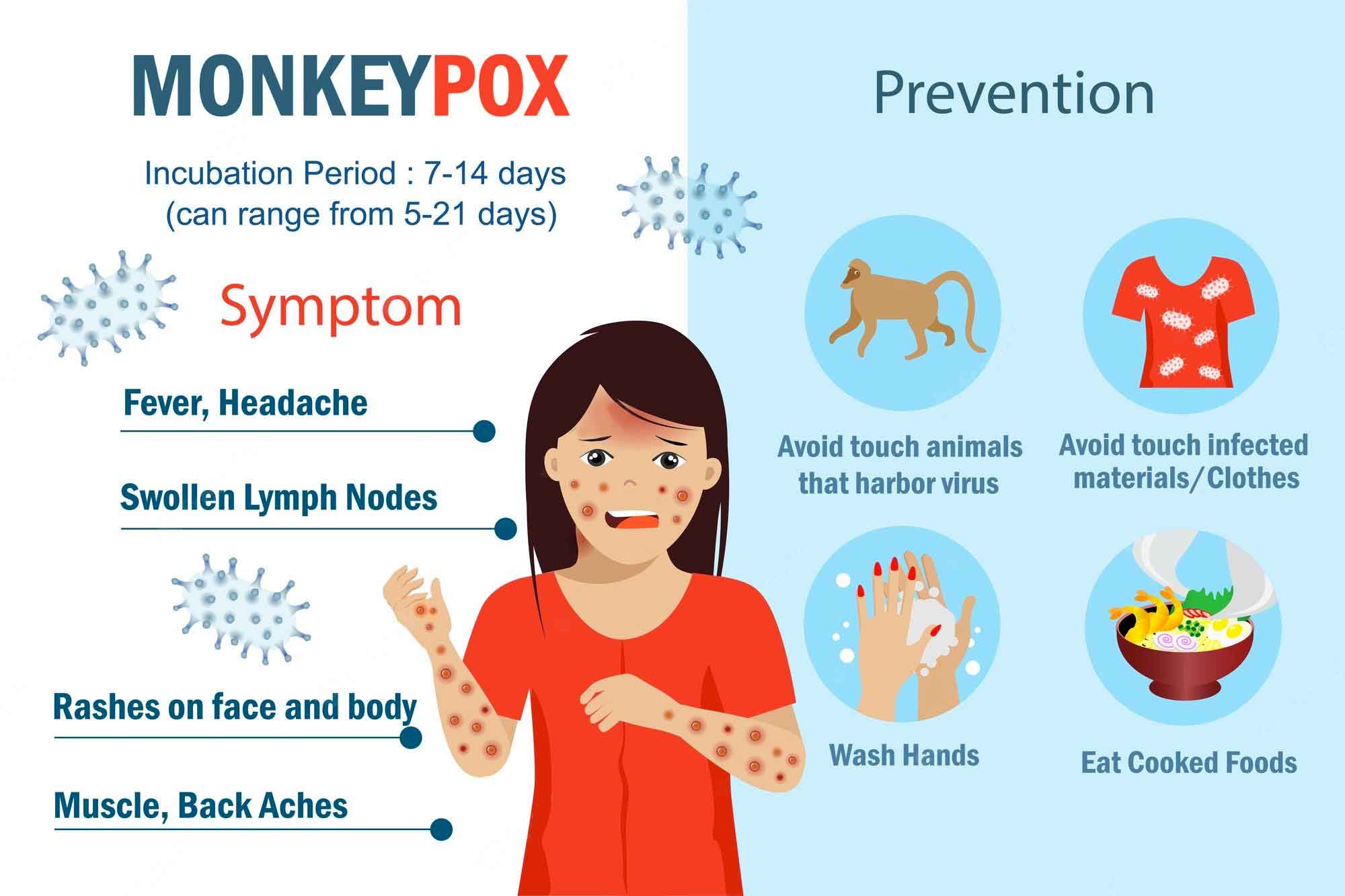- 23-Sep-22
The uncommon viral ailment called monkeypox is primarily prevalent in parts of Central and West Africa. Health officials in Pakistan have been made aware in recent weeks by reports of confirmed monkeypox cases in non-endemic nations including the United Kingdom. A second monkeypox outbreak could be disastrous in light of the recent COVID-19 pandemic's destructive effects on Pakistan's healthcare sector. Due to a lack of funding and personnel, the country's healthcare system was vulnerable during the COVID-19 pandemic. Therefore, it is essential that the appropriate health authorities work proactively to inform the public about sensible safety precautions that can keep them safe in the case of a monkeypox outbreak.
Monkeypox in Pakistan:
The news of possible monkeypox cases in Pakistan quickly went viral on social media in the middle of this world upheaval. The NIH, however, refuted these assertions and made it clear that no cases of monkeypox have yet been identified in Pakistan.
Difference between Chickenpox and Monkeypox:
Monkeypox is a disease caused by the orthopoxvirus, whereas chickenpox is caused by a herpes virus. Fever, malaise, headache, and occasionally sore throat, cough, and enlarging lymph nodes are among the typical early symptoms of monkeypox.
What is Monkeypox?
The monkeypox virus is the infection that causes the disease. It is a viral zoonotic infection, which means that it can be passed from animals to people. It could also transmit from one individual to another.
Early Stage Monkeypox:
Monkeypox symptoms normally occur three weeks after the virus has been introduced. Usually 1–4 days after suffering flu-like symptoms, a rash will show up. Monkeypox can pass from person to person until the rash has healed and all scabs have fallen off and a fresh layer of skin has developed.
Monkeypox Symptoms:
Numerous symptoms and signs are associated with monkeypox. While some individuals only have minor symptoms, others may experience more severe symptoms and require medical attention. Immune system dysfunction, pregnancy, and children are risk factors for serious illness or consequences.
Fever, headache, muscle aches, back discomfort, loss of energy, and swollen lymph nodes are among the most typical symptoms of monkeypox. A rash may develop as a result of this or concurrently with it and last for two to three weeks. The face, palms of the hands, soles of the feet, eyes, mouth, throat, groyne, and genital and/or anal parts of the body are among the areas where the rash may develop. One lesion or hundreds may exist. A fresh layer of skin is seen beneath lesions, which initially seem flat, fill with fluids, then crust over, dry out and fall off. Symptoms typically last two to three weeks before disappearing on their own or with supportive therapy such as painkillers or fever-relieving drugs. Until all lesions have crusted over, all scabs have peeled off and a fresh layer of skin has developed underneath, a person is still contagious. Anyone who believes they may have monkeypox symptoms or who has come into touch with someone who has should consult a healthcare professional for guidance.
Monkeypox Treatment:
There is currently no medication authorised especially for illnesses caused by the monkeypox virus. Antivirals created for people with smallpox however might be useful in treating monkeypox. The Strategic National Stockpile (SNS) now offers the following medical countermeasures as options for treating monkeypox:
The Food and Drug Administration (FDA) of the United States has approved the antiviral drug TPOXX for the treatment of smallpox in both adults and children. There is no data on tecovirimat's efficacy in treating monkeypox infections in humans, however, research on a range of animal species has demonstrated that tecovirimat is useful in treating diseases brought on by orthopoxviruses. Clinical studies on humans revealed that the medication was secure and had few unwanted side effects. The CDC's extended access guideline frequently referred to as "compassionate use," allows for the use of tecovirimat to treat monkeypox during an outbreak. Tecovirimat is available as a pill or an injectable. You can open the capsule and mix the medication with semi-solid meals for kids under 28.6 pounds.
Integrated Medical Care Hospital (IMC Hospital)
Though maintaining our health is solely our responsibility, we must acquire expert guidance and treatment if we are to enjoy optimum health benefits that pertain to us. Therefore, picking a renowned hospital is essential. Integrated Medical Care Hospital is a reputable institution and often termed as one of the best hospitals in Pakistan. Visit today and book your appointment at Integrated Medical Care Hospital (IMC Hospital).

 Map
Map










